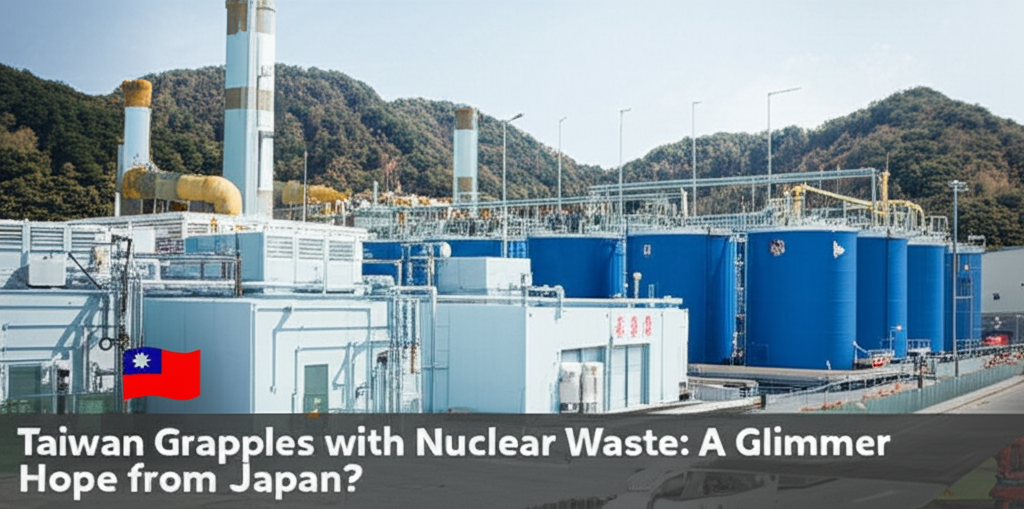Taiwan Grapples with Nuclear Waste: A Glimmer of Hope from Japan?
Could a breakthrough in Japan offer Taiwan a path forward in its nuclear energy debate?

Recent headlines have been buzzing with news of advancements in nuclear power technology. Even nations that previously opposed nuclear energy are now announcing plans to revisit it. Adding to the excitement, reports from the Japanese nuclear science community suggest a potential breakthrough in resolving the intractable issue of nuclear waste.
The global debate surrounding nuclear energy persists, with the concept of a "nuclear-free homeland" ("非核家園") holding significant symbolic weight. This is largely due to the long-standing challenge of safely managing nuclear waste. Regardless of technological progress in nuclear power, the unresolved problem of nuclear waste has cast a shadow over its future. However, the recent announcement by the Japanese Atomic Energy Agency, regarding the development of the first "nuclear waste-powered rechargeable battery," offers a potential ray of hope, even if it doesn't completely solve the problem.
The Japanese Atomic Energy Agency has officially announced the design of a new rechargeable battery using uranium as the active material. They utilize depleted uranium, a byproduct of refining fuel rods from natural uranium ore, as the active material for the negative electrode in the battery's chemical process, while iron is used for the positive electrode. Depleted uranium has long been recognized as a suitable active material for chemical batteries. According to the Japanese Atomic Energy Agency, the rechargeable battery developed with depleted uranium has a voltage of 1.3 volts, close to the 1.5 volts of alkaline batteries.
Other Versions
Taiwán se enfrenta a los residuos nucleares: ¿Un rayo de esperanza desde Japón?
Taïwan aux prises avec les déchets nucléaires : Une lueur d'espoir en provenance du Japon ?
Taiwan Bergulat dengan Limbah Nuklir: Secercah Harapan dari Jepang?
Taiwan alle prese con le scorie nucleari: Un barlume di speranza dal Giappone?
核廃棄物に取り組む台湾:日本からの希望の光?
대만, 핵폐기물과 씨름하다: 일본의 희미한 희망?
Nakikipagbuno ang Taiwan sa Nuclear Waste: Isang Sulyap ng Pag-asa mula sa Japan?
Тайвань борется с ядерными отходами: проблеск надежды из Японии?
ไต้หวันรับมือกับกากกัมมันตรังสี: ความหวังจากญี่ปุ่น?
Đài Loan vật lộn với chất thải hạt nhân: Tia hy vọng từ Nhật Bản?

